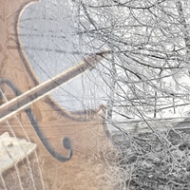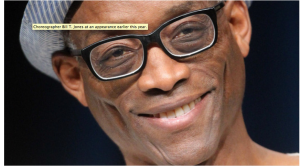Astonishing post in the San Francisco Classical Voice about a 1924 letter that blind, deaf, and mute Helen Keller wrote to the New York Symphony (the rival of the New York Philharmonic before they eventually merged in 1928), recounting the experience of tuning in to a broadcast of Beethoven’s Ninth Symphony on the radio:
Last night, when the family was listening to your wonderful rendering of the immortal symphony someone suggested that I put my hand on the receiver and see if I could get any of the vibrations. He unscrewed the cap, and I lightly touched the sensitive diaphragm.
What was my amazement to discover that I could feel, not only the vibration, but also the impassioned rhythm, the throb and the urge of the music! The intertwined and intermingling vibrations from different instruments enchanted me. I could actually distinguish the cornets, the roil of the drums, deep-toned violas and violins singing in exquisite unison. How the lovely speech of the violins flowed and plowed over the deepest tones of the other instruments! When the human voices leaped up thrilling from the surge of harmony, I recognized them instantly as voices more ecstatic, upcurving swift and flame-like, until my heart almost stood still.
Really? Congrats to San Francisco Classical Voice Writer Janos Gereben for this bit of sleuthing – the letter was apparently in the Helen Keller Archives of the American Federation of the Blind. But I’m rather surprised that this story has never come up before – and the skeptic in me wonders is Ms. Keller did not indulge in a bit of a creative flight of fancy. I don’t tend to think of a 1920s-era radio as capable of “surround sound,” but it sure is fascinating notion to imagine that someone who was doubtless as hypersensitive to vibrations as Helen Keller could actually pick out and detect a symphony that way. Can anyone corroborate this?





You must be logged in to post a comment.